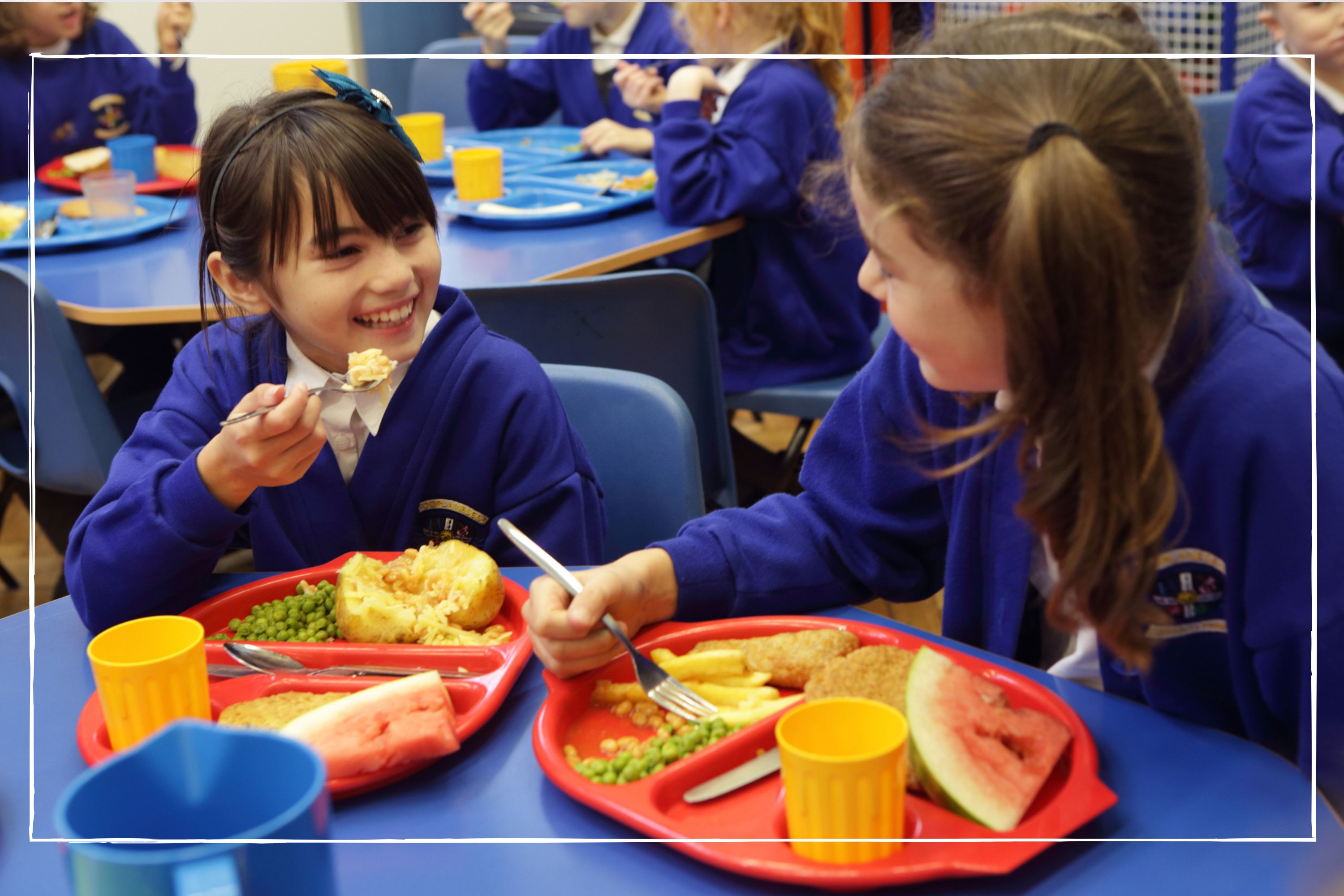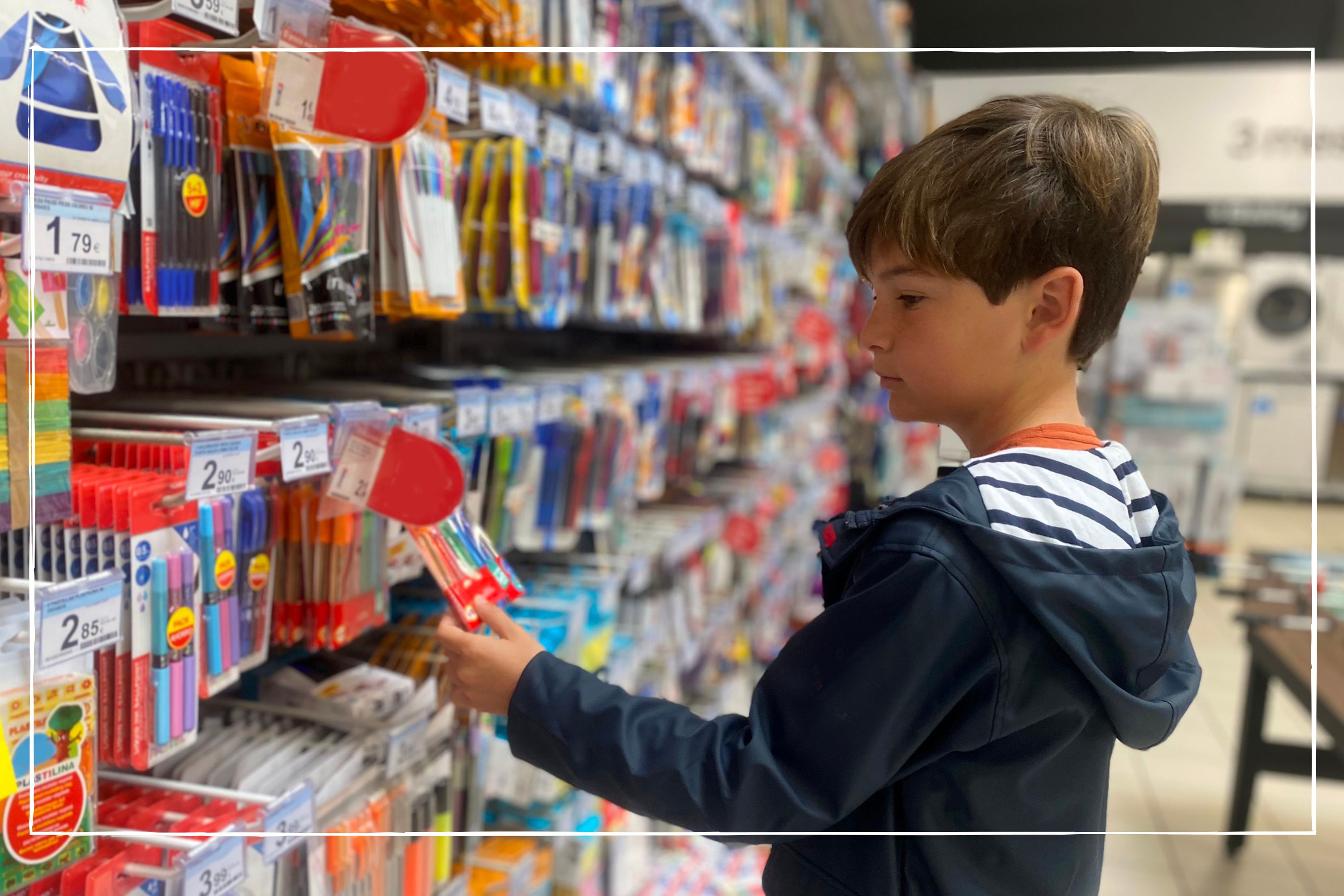Can your child get free school meals and how do you apply?
Making the most of free school meals could save you a considerable sum of money both during term time and the school holidays


If your child qualifies, free school meals can make a big difference to your bank balance at a time when the cost of everything, from food to fuel, is rising.
Back to school costs can be expensive enough, whether you’re buying new school uniform, essential stationery or accessories. But now that inflation is at a 40-year high, budgets are being stretched even further. Applying for free school meals, or seeing if you qualify for a school uniform grant are a couple of ways to help keep those costs down.
John Jackson, CEO of edtech charity LGfL-The National Grid for Learning, creators of the Free School Meal Eligibility Checker, told us: “With the cost of living soaring, family finances are under a lot of pressure. This means it’s really important to understand how to save money, such as looking into whether your child is eligible for free school meals.”
Whether your child qualifies for free school meals will depend on the type of school they go to, the age they are and where in the UK you live. It will also depend on whether you are in receipt of any benefits.
If your child goes to a private school, there will be no financial help, unless you’re on a bursary. But if your child is at a state school, you might be able to get some financial support, as we explain.
Can my child get free school meals?
If your child is in a state-funded primary school in England, Scotland or Wales, they will automatically qualify for free school meals if they are in certain year groups, regardless of your financial circumstances. The table below outlines how this works:
| Country | School years automatically eligible for free school meals | Age of child |
|---|---|---|
| England | Reception, Year 1 and Year 2 | Approx age 4 - 7 |
| Scotland | Reception through to Year 5 | Approx age 4 - 9 |
| Wales | Reception as of September 2022. (All primary school children are set to get free school meals by 2024). | Age 4 and 5 |
If your child is older, including if they are in secondary school, or if you live in Northern Ireland, they might also be eligible for free school meals if you receive certain benefits and your child is in full-time education.
GoodtoKnow Newsletter
Parenting advice, hot topics, best buys and family finance tips delivered straight to your inbox.
Wherever you live in the UK, you or your child must be claiming at least one of the following benefits to qualify:
- Income Support
- Income-based Jobseeker’s Allowance
- Income-related Employment and Support Allowance
- Support under Part VI of the Immigration and Asylum Act 1999
- The ‘guaranteed element’ of Pension Credit
- Child Tax Credit (provided you’re not also entitled to Working Tax Credit and have an annual gross income of no more than £16,190 in England and Wales)*
- Working Tax Credit run-on - paid for 4 weeks after you stop qualifying for Working Tax Credit
- Universal Credit - if you apply on or after 1 April 2018 your household income must be less than £7,400 a year in England and Wales, £660 a month in Scotland or £14,000 a year in Northern Ireland (after tax and not including any benefits you get)
*In Scotland, if you get Child Tax Credit without Working Tax Credit, you can still get free school meals if your income is less than £17,005 per year. Or if you also get Working Tax Credits, your income must be less than £7,920 a year. In Northern Ireland, if you get Child Tax Credit or Working Tax Credit, you’ll still get free school meals if your income is less than £16,190 a year.
Elaine O’Brien from charity LGfL adds: “If your child is eligible for free school meals, they’ll remain eligible until they finish the phase of schooling (primary or secondary) they’re in on 31 March 2023.” This is the case even if your earnings change.
How to apply for free school meals
If your child is young enough to automatically qualify for free school meals (as outlined in the table above), you do not need to do anything. But if your child is older, you will need to apply for free school meals.
Crucially, you might need to make your application each year and you’ll need to do this before the new school year starts in September.
Phoebe Ellis, consumer champion at Thrive Money, says: “To make things easier, you only need one application to be completed per family. Applications differ depending on what council you are in so you should reach out to your local council to find out what they require.”
In England, you can apply to your local council by using the free eligibility checker on the gov.uk website. This will then take you to your local council’s website to make your application.
In Scotland, you can head to the mygov.scot website which will link you through to your local council’s website to make your application.
In Wales, you can head to the gov.wales site to find out how to apply through your local authority’s website, and in Northern Ireland, you can apply online through the Education Authority website.
Can I get free school meal vouchers to use outside of term time?
If you qualify for free school meals, you might also be entitled to food vouchers during the school holidays. However, you will need to check with your local council as it can vary between areas.
In England you can usually claim up to £90 per child during the six-week summer break, which works out to be £15 a week. But the exact amount can vary depending on the council. Kent County Council, for instance, offers one £50 food voucher for each eligible child, while Bath and North East Somerset Council offers the full £90 per child. The vouchers are funded from part of each council’s allocation from the government’s Household Support Fund.
Whether you need to apply for vouchers will depend on your local council, but some will be sent out automatically. Once you have received your vouchers, they can usually be spent at major supermarkets and some local shops, but this can vary by area, so make sure you check. Vouchers must only be spent on food - they should not be used to purchase products such as alcohol, tobacco, mobile phone top ups, gift cards or lottery tickets.
On top of this, you can also benefit from the Holiday Activity and Food Programme which takes place over the summer, Easter and Christmas holidays. This provision is for school aged children from Reception to Year 11 and gives them access to free healthy meals and fun activities. Each local authority must provide the equivalent of six weeks’ holiday provision:
- Over Easter there must be at least four days of support
- Over the summer, there must be at least four weeks of support (or three if your child’s holiday is less than six weeks)
- Over Christmas, there must be at least four days of support.
How has Marcus Rashford supported free school meals?
Manchester United striker Marcus Rashford has campaigned tirelessly to protect school children in the UK against hunger. In 2020 he fought hard to get the government to extend its free school meals voucher scheme over the summer holidays for low-income families.
He also partnered with the food distribution charity FareShare to cover some of the free school meal deficit while schools were closed due to the pandemic. Through this partnership, Marcus Rashford has helped raise enough money to enable FareShare to distribute the equivalent of over 21 million meals for children and families who might not otherwise eat.
An Open Letter to all MPs in Parliament...#maketheUturn Please retweet and tag your local MPs pic.twitter.com/GXuUxFJdcvJune 14, 2020

Mum of two, Rachel is a freelance personal finance journalist who has been writing about everything from mortgages to car insurance for over a decade. Having previously worked at Shares Magazine, where she specialised in small-cap stocks, Rachel developed a passion for consumer finance and saving money when she moved to lovemoney.com. She later spent more than 8 years as an editor at price comparison site MoneySuperMarket, often acting as spokesperson. Rachel went freelance in 2020, just as the pandemic hit, and has since written for numerous websites and national newspapers, including The Mail on Sunday, The Observer, The Sun and Forbes. She is passionate about helping families become more confident with their finances, giving them the tools they need to take control of their money and make savings. In her spare time, Rachel is a keen traveller and baker.
-
 How to save money: 28 family-friendly money-saving tips for mums and dads
How to save money: 28 family-friendly money-saving tips for mums and dadsUnderstanding how to save money is key to limiting the impact of rising costs as much as possible
By Sarah Handley Published
-
 14 hidden benefits of your Amazon Prime membership
14 hidden benefits of your Amazon Prime membershipWe reveal the less-obvious perks of a Prime membership that will help you get the most value out of your subscription fee
By Rachel Wait Published
-
 14 surprising ways to spend your Tesco Clubcard vouchers - from restaurants and cinema passes to mini breaks and Disney+
14 surprising ways to spend your Tesco Clubcard vouchers - from restaurants and cinema passes to mini breaks and Disney+Tesco Clubcard vouchers can help you cut the cost of everything from groceries and travel to days out and cinema tickets
By Heidi Scrimgeour Published
-
 How to get Disney+ for free and save up to £79.90 a year
How to get Disney+ for free and save up to £79.90 a yearEven though the streaming giant ended its free trial offering, there are still multiple ways you can get Disney+ for free for up to 12 months
By Sarah Handley Published
-
 Parents of teens who have just taken their GCSEs urged to check child benefit status ahead of August deadline
Parents of teens who have just taken their GCSEs urged to check child benefit status ahead of August deadlineWith a child benefit deadline looming, some parents could see their payments reduced or stopped altogether - here's why
By Sarah Handley Published
-
 Parents should hold off buying this back to school staple 'as close to their first day as possible', says retailer
Parents should hold off buying this back to school staple 'as close to their first day as possible', says retailerWith parents turning their attention to kitting their kids out for the new school year, research suggestions which items should be left until the last minute
By Sarah Handley Published
-
 7 ways to save on back to school essentials, as its revealed parents will spend £2.3 billion in 2024
7 ways to save on back to school essentials, as its revealed parents will spend £2.3 billion in 2024We share ways you can get your child all the bits and bobs they need for the new school year, without breaking the bank
By Sarah Handley Published
-
 What day is child benefit paid around the bank holiday? Everything parents need to know
What day is child benefit paid around the bank holiday? Everything parents need to knowKnowing which day child benefit is paid when it comes to the bank holiday can help families plan their budgets accordingly
By Sarah Handley Published